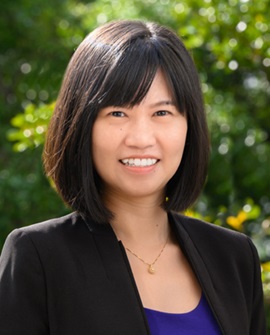Shi Yan NG

SUMMARY
- 2025: National Research Foundation – Competitive Research Programme (NRF CRP)
- 2023: National Medical Research Council Open Fund – Individual Research Grant (NMRC OF-IRG)
- 2021: A*STAR-EVX PLATINUM Grant
- 2021: The SCSS Dr. Susan Lim Award for Outstanding Young Investigator
- 2020: A*STAR Therapeutics Development Review (TDR) Cycle 5
- 2019: L'Oréal For Women in Science National Fellowship
- 2018: National Research Foundation Fellowship (NRFF Class of 2018)
- 2016: National Medical Research Council Open Fund – Young Individual Research Grant (NMRCOF-YIRG)
- 2012: A*STAR International Fellowship
- 2011: Merck Millipore Young Scientist Award
In developed nations including Singapore, neurological diseases represent one of the top leading causes of death, and the socio-economic burden of these diseases is extremely high. In particular, neurodegenerative diseases such as ALS and dementia have no effective treatments and no cures. My lab's research aims to address these unmet medical needs by:
1) Building disease-relevant cell-based models, including organoids
2) Understanding the molecular and metabolic underpinnings of neurological diseases
3) Discovering and evaluating novel drug targets and therapeutic modalities.
Current research projects:
1) Investigating the relationship between lipid metabolism defects and astrocyte-mediated toxicity in neurodegeneration
2) Uncovering changes in protein lactylation and its contribution to ALS pathogenesis
3) Identifying novel microglia-based targets for neurodegeneration using immuno-competent organoids
- Enterovirus-A71 preferentially infects and replicates in human motor neurons, inducing neurodegeneration by ferroptosis.
Wai Hon Chooi, Winanto, Yingying Zeng, Cheryl Y Lee, Ze Qin Lim, Pradeep Gautam, Justin JH Chu, Yuin-Han Loh, Sylvie Alonso*, Shi-Yan Ng* (2024)
Emerg Microbes Infect. 13(1):2382235
*corresponding authors - Defined alginate hydrogels support spinal cord organoid derivation, maturation, and modeling of spinal cord diseases.
Wai Hon Chooi*, Chong Yi Ng, Valerie Ow, Winanto Ng, Jin-Hui Hor, Kay En Low, Benoit Malleret, Kun Xue, Shi-Yan Ng* (2023)
Adv Healthc Mater. 12(9): e2202342
*Corresponding authors - Metabolic contributions to neuronal deficits caused by genomic disruption of schizophrenia risk gene SETD1A.
Zheng-Shan Chong, Zi Jian Khong, Shermaine Huiping Tay, Shi-Yan Ng* (2022)
Schizophrenia. 8(1): 115
*Corresponding author
- ALS motor neurons exhibit hallmark metabolic defects that are rescued by SIRT3 activation.
Jin Hui Hor, Munirah M Santosa, Valerie JW Lim, Beatrice X Ho, Amy Taylor, Zi Jian Khong, John Ravits, Yong Fan, Yih-Cherng Liou, Boon-Seng Soh*, Shi-Yan Ng* (2021)
Cell Death Differ. 28(4): 1379-1397
*Corresponding authors
- Organoid cultures of MELAS neural cells reveal hyperactive Notch signaling that impacts neurodevelopment.
Winanto, Zi Jian Khong, Boon Seng Soh*, Yong Fan*, Shi-Yan Ng* (2020)
Cell Death Dis. 11: 182
*Corresponding authors
- Cell cycle inhibitors protect motor neurons in an organoid model of Spinal Muscular Atrophy.
Jin-Hui Hor, Eunice Shi-Yi Soh, Li Yi Tan, Valerie Jing-Wen Lim, Munirah M Santosa, Winanto, Boon-Seng Soh*, Shi-Yan Ng* (2018)
Cell Death Dis. 9:1100
*Corresponding authors
A*STAR celebrates International Women's Day

From groundbreaking discoveries to cutting-edge research, our researchers are empowering the next generation of female science, technology, engineering and mathematics (STEM) leaders.
Get inspired by our #WomeninSTEM
.png?sfvrsn=c3edc68e_6)